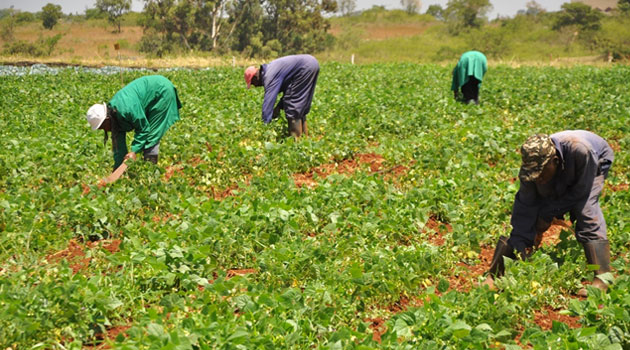
The Special Focus section of the KEU highlights a few of the many factors underlying low agriculture sector productivity and high vulnerability to climate shocks./FILE
NAIROBI, Kenya, Apr 9 – The World Bank has revised Kenya’s GDP growth to 5.7 percent this year a slight drop compared to the 5.8 percent growth last year on account of the delayed rains.
In its Kenya Economic Update, the bank said the drought will affect the planting season resulting in delayed harvest while the slow credit growth to the private sector will drag down the economy in the near-term.
“Growth in 2018 was driven by favorable harvests, a resilient services sector, positive investor confidence and a stable macroeconomic environment,” noted the report.
Demand has primarily been driven by private consumption even as private sector investment remains.
In the first quarter of this year, there was a strong pick-up in economic activity reflected by real growth in consumer spending and stronger investor sentiment.
The bank, however, maintains a 5.9 percent growth forecast for 2020.
The Special Focus section of the KEU highlights a few of the many factors underlying low agriculture sector productivity and high vulnerability to climate shocks.
“Delays in the long rain season and a growing need for emergency interventions to deal with food shortages is a reminder of the outstanding challenges in managing agricultural risks in Kenya,” said Felipe Jaramillo, World Bank Kenya Country Director.
“Policy measures would be required to transform the agriculture sector through increasing productivity and enhancing resilience to agricultural risks to boost smallholder farmers’ income by improving access to competitive markets.”
Peter Chacha, World Bank Senior Economist, says Kenya will also need to enhance tax revenue mobilization to support government spending and revive the effectiveness of the monetary policy.
The report recommends reforms in the current fertilizer subsidy program to ensure that it is efficient and investments in irrigation and water management infrastructure to build resilience in the sector.
To boost farmers’ incomes policy could seek to address post-harvest losses and marketing challenges by fast-tracking implementation of the national warehousing receipt system and commodities exchange, while scaling up agro-processing and value addition to increase returns on agricultural produce.


































